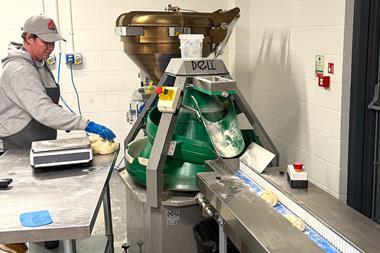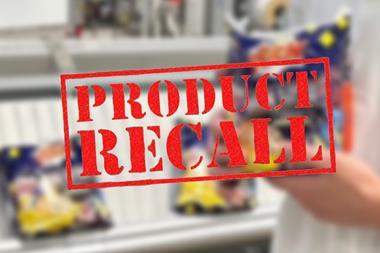
The Food Standards Agency (FSA) has launched a consultation to gather views on ‘may contain’ labelling for food packaging.
It is keen to hear from food business owners, staff and other interested parties on the use of precautionary allergen information after its research on the subject revealed differing attitudes.
According to the FSA, its studies found that food-hypersensitive consumers – including people with food allergies, intolerances or coeliac disease – appreciate precautionary allergen information or labelling when it clearly tells them about an unavoidable risk of allergen cross-contamination.
However, it was also revealed that consumers can be confused by the range of precautionary labelling statements on prepacked foods such as biscuits where the wording can differ between products and it might not be clear what the risk is.
In addition, the research found that many food businesses are using these labels in an effort to protect consumers but are confused about when and how they need to do so. According to the FSA, there is evidence that businesses require clarity on the measures they need to take to control the risk of allergen cross-contamination, which then informs their labelling decision.
“Consumers have told us that inconsistency in how precautionary allergen labelling and information is given can cause a lack of trust in the labels and stop them being able to enjoy certain foods,” said Rebecca Sudworth, Food Standards Agency director of policy.
“We know that precautionary allergen information is difficult for businesses and local authorities responsible for enforcing the law, and we very keen to hear from them about how to make the law clearer and easier to follow,” Sudworth added.
Views are also being sought on the provision of precautionary allergen information about non-prepacked foods, such as meals served on premises, where precautionary information can be given verbally but sometimes is not provided at all.
The consultation on precautionary allergen information will run until 14 March 2022, with the FSA gathering opinions through a series of in-depth workshops. Interested parties can get involved via the FSA website.
“The responses we get will help inform our next steps in making a workable system for businesses to put into practice that consumers understand and trust,” said Sudworth.
Food allergen labelling has been under the spotlight recently with Natasha’s Law coming into force in October, meaning an individual label showing the name of the food item and a full ingredients list is required on pre-packed for direct sale (PPDS) food.
































No comments yet